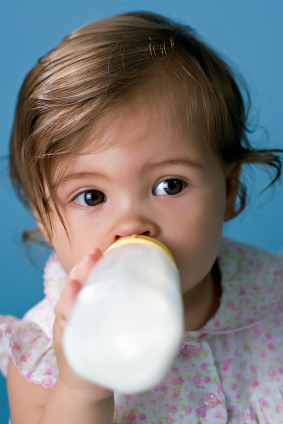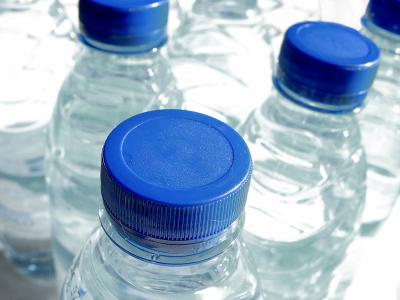ANH-USA Citizen Petition To FDA About Dangerous Chemical BPA
| ******** Action Alerts for this Campaign ******** | |
 | Ask CPSC to Reconsider Our Citizen Petition on BPA in Cash Register Receipts Last August, ANH-USA filed a Citizen Petition with the Consumer Product Safety Commission (CPSC) to have the endocrine-disrupting chemical bisphenol-A (BPA) banned from thermal cash register receipts. Cash register receipts are the little-known but most common pathway for BPA into your body. The CPSC responded and refused to consider our petition,claiming that it did not meet their requirements based on some very flimsy reasoning: that the regulation of cash register receipts are the jurisdiction of worker safety (OSHA) and not consumer safety. In early March we once again sent CPSC our petition, accompanied by a letter demanding that they fully consider our petition and assess it on the legal grounds and evidence that we presented to them. Please ask CPSC to respond to our letter and our petition again, and to take seriously the consumer safety concerns presented by BPA. Read More>> California Residents–Tell Your State Senators to Support AB 1319! The California Legislature has introduced a bill, AB 1319, to ban BPA in children’s toys and childcare articles. It is called the Toxin-Free Infants and Toddlers Act. Read More>> New York Residents–Tell Your Legislators to Support S 4903 New York just introduced a bill, S 4903, to ban BPA in cash register receipts. BPA is already banned in child care products like pacifiers, baby bottles, and sippy cups. The bill is currently in the environmental conservation committee. Read More>> |
| Read More About BPA: | |
| FDA Tries to Wiggle Out of BPA Problem with Doublespeak and a Partial Ban | |
 | July 24, 2012 Even this limited action is taken only at industry request. Read More>> |
| No More “Pinkwashing”! Support an Integrative Approach to Breast Cancer | |
 | October 25, 2011 Increasingly, breast cancer fundraising means playing ball with companies whose products actually cause cancer. Read More>> |
| You Did It! You Helped Ban BPA in Delaware! | |
 | June 28th, 2011 A few weeks ago we issued an Action Alert to help pass an important bill to fight BPA in Delaware. Thanks to your activism, Delaware’s children will be healthier. Read More>> |
| Canada Declares BPA Toxic | |
 | October 19, 2010 Last week, the government of Canada formally declared bisphenol A to be a toxic substance. The US still denies it. Read More>> |
| ANH–USA Files Petition to Ban BPA in Cash Register Receipts | |
 | August 3, 2010 Today, the Alliance for Natural Health USA is filing a Citizen Petition with the Consumer Products Safety Commission to have bisphenol-A (BPA) banned from cash register receipts, the little-known but most common pathway into your body. Please help make the CPSC pay attention to the latest science. Read More>> |
| A BPA Ban In The Food Safety Bill? | |
 | May 11, 2010 The widely used chemical bisphenol A (BPA) is an estrogen-mimicker. Some 200 animal studies have suggested that the substance is very harmful. Over 90 percent of Americans show some BPA in their “body burden”. It is especially hard to avoid BPA since it is used in plastic containers and food liners and is even used to make the coating on the receipts we get at stores. For most urban residents, the handling of these receipts is thought to be the number one source of BPA in the body. About 2 billion pounds of BPA are produced in the United States each year. Read More>> |
FDA ‘Powerless’ Re: BPA? | |
| February 2, 2010 For three years, the Milwaukee Journal Sentinel has written about the government’s failure to regulate bisphenol A (BPA). Now, even as the agency retracts its previous contention that BPA is safe, troubling new evidence surfaces regarding the FDA’s inaction. Read More>> | |
| FDA Tiptoes Around BPA | |
 | January 19, 2010 What does the agency want: more money for more studies, or more press coverage? Read More>> |
| Are Mothers-To-Be Unwittingly Passing BPA and Other Chemicals to their Unborn Babies? | |
| December 22, 2009 All children deserve the best protection we can provide, but the government is failing to shield our most vulnerable population — the unborn — from chemicals in the environment. Read More>> | |
| France to Become the First European Country to Ban BPA in All Food Containers | |
 | August 18, 2009 Due to the known dangers of bisphenol A (BPA), France is set to implement a ban on using BPA is all food containers and bottles. Is the FDA listening? Read More>> |
| Chemicals and Hormones Are a Bad Mix | |
| June 30, 2009 In the U.S., BPA is now banned by California, Connecticut, Minnesota, and the city of Chicago. Abroad Ireland may follow Canada’s lead. Read More>> | |
| Strong New Evidence of BPA’s Danger, Yet AAHF’s Petition to the FDA Remains Unanswered | |
| June 23, 2009 The Endocrine Society has found that BPA, found in many household and dental products, can actually interfere with the hormone system and cause serious health problems. They state that these hormone-disrupting chemicals “affect everyone.” Read More>> | |
| Congressional Panel Wants New Review of BPA Safety | |
| June 9, 2009 A congressional committee is investigating whether the FDA gave undue influence to chemical makers after the Milwaukee Journal Sentinal revealed how government regulators relied heavily on industry lobbyists when considering the safety of the chemical bisphenol A (BPA), and broke the news that lobbyists met last week at an exclusive club in Washington to hammer out a public relations strategy to sell the benefits of BPA to the American public, including “befriending people that are able to manipulate the legislative process.” Read More>> | |
| Why Is FDA Protecting the BPA Lobby? | |
| May 19, 2009 As we have reported previously, bisphenol A (BPA), a chemical in the packaging or contents of many products, may cause cancers, reproductive defects, diabetes, ADD, asthma, and autism. Now emails obtained by the (Milwaukee, WI) Journal Sentinel show that the FDA sought information from the BPA industry’s chief lobbyist to discredit a Japanese study that found it caused miscarriages in workers who were exposed to it. These emails show a pattern of preferential treatment over the past nine years that was not afforded to independent scientists. Read More>> | |
| Newborns Have Eleven Times More BPA in Their Systems than Adults | |
 | April 21, 2009 A recent meeting in Germany gathered international scientists from industry, academia, and government to assess the concerns about bisphenol A, or BPA. Previous issues of Pulse of Health Freedom have followed the FDA’s conflicting actions on the chemical, which is linked to reproductive ills as well as neurobehavioral concerns. The group found agreement on several key issues: how people are exposed to BPA, how people metabolize BPA, and how to test for BPA. Read More>> |
| Congress Moves to Ban BPA from Food and Beverage Containers | |
| March 17, 2009 Congress has announced legislation to establish a federal ban on bisphenol A in all food and beverage containers. Sunoco is refusing to sell BPA to companies for use in food and water containers for children, and six baby bottle manufacturers, including Playtex and Gerber, say they’ll stop using BPA. Is the world finally seeing the light about this toxic chemical? Read More>> | |
| BPA Levels in the Body Appear to Drop about Eight Times Slower than Expected | |
| February 10, 2009 The lead author of a newly published study says, “Scientists believed that BPA was excreted quickly and that people were exposed to BPA primarily through food. Our results simply do not fit that picture.” Keep in mind that FDA has declared BPA to be safe because of these very assumptions. Read More>> | |
| Children’s Dental Devices Contaminated with BPA | |
| February 6, 2009 Today the American Association for Health Freedom (AAHF) petitioned the FDA about Bisphenol-A (BPA), an organic compound found in polycarbonate plastics. They have asked the FDA to issue a statement encouraging Americans to request BPA-free dental sealants and devices for their children until studies prove conclusively that BPA presents no health risks. | |
| BPA — More Bad News for Babies | |
| January 20, 2009 Two newly published studies reveal just how detrimental inaction may be by agencies such as FDA regarding BPA and babies. One study highlighted that babies exposed to more plastic medical devices had more BPA in their urine that those babies with less contact. The second study predicts that BPA in babies fed via baby bottles may be 11 times higher than that in adults. Read More>> | |
| BPA and the FDA among 2008’s Top 10 Hot Topics, says WebMD | |
| January 13, 2009 The FDA’s lack of action on bisphenol A has become a rallying cry and reminded people again why the FDA needs a complete overhaul. A recent review about the chemical, which is found in baby bottles, food cans, water bottles, and widely used children’s dental materials, excluded key studies. Read More>> | |